
Because Shabbat (Sabbath) falls during the eight-day holiday of Chanukah, it is called Shabbat Chanukah. As you study the portion of the Torah that will be a blessing.
Hanukkiahs lit for the sixth night of Chanukah (Photo by Congregation
Beth Israel)
Miketz (At the End)
Genesis 41:1–44:17; Zechariah 2:10(14)–4:7; John 1:1–18 “And it came to pass at the end of [miketz] two full years, that Pharaoh dreamed a dream: and, behold, he stood by the river.” (Genesis 41:1) In last week’s study, Joseph’s brothers became jealous of him. They plotted against him because his father favored him above his other sons and because his prophetic dreams revealed his own grand destiny. So they threw Joseph into a pit and then sold him into slavery. While serving honorably as a slave, Joseph was falsely accused and sent to prison for a crime he didn’t commit. In this week’s reading, Joseph is finally about to come to the end of his many trials and enter into his grand destiny. In fact, the name of the Parasha, Miketz, found in the opening verse of this week’s Torah reading, hints at this since this Hebrew word means at the end of. Joseph is brought out of the darkness of an Egyptian dungeon to illumine the strange dreams of the Pharaoh. In just one day, Joseph is promoted from prison to palace; his life was transformed suddenly from darkness to light.
Joseph Interprets Pharaoh's Dream, by James Tissot
A Light in the Darkness
Because Miketz coincides with Chanukah or the Festival of Lights this year, this week’s portion includes a special Haftarah (prophetic reading) about the prophet Zechariah’s vision of a grand Menorah. He says, “He asked me, 'What do you see?' I answered, 'I see a solid gold lampstand with a bowl at the top and seven lamps on it, with seven channels to the lamps. Also there are two olive trees by it, one on the right of the bowl and the other on its left.'” (Zechariah 4:2–3) Two olive trees feed this grand Menorah with oil. The trees are often considered to refer to Joshua the High Priest and Zerubbabel, religious and political figures. But since prophecy usually reveals the present and future, and since trees in Scripture often represent people, these two trees are seen by some to represent Jewish Believers and Gentile Believers, anointed sons who have been shining light into the darkness for over 2,000 years. Others think the two trees represent the Messiah (the Lord's Righteous Branch) and Ruach HaKodesh (Holy Spirit) who are “anointed to serve the Lord of all the earth.” (Zechariah 4:14) Zechariah promises that the darkness that comes from our sin, which separates us from God, will be supernaturally lifted in a single day by His Righteous Branch. “I am going to bring My servant, the Branch. … and I will remove the sin of this land in a single day.” (Zechariah 3:8–9) God also speaks of the supernatural working of the Ruach to accomplish His plans, such as the building of the Second Temple by Zerubbabel:“This is the word of the LORD to Zerubbabel: 'Not by might nor by power, but by My Spirit,' says the LORD Almighty." (Zechariah 4:6)
The fried food of Chanukah, which includes donuts (sufganiyot),
represents the miracle of a one-day supply of holy oil for the Temple
Menorah lasting the eight days required to purify more oil.
In the Holy Sanctuary, the light of the Menorah became a symbol of God’s Divine Presence; its light shone not only inside the Temple, but tradition says it also shined out the windows and into Jerusalem where people could bask in its rays during the dark nights. During this time of year, when the winter nights are the longest, we sense our need for light more intensely. Some people even experience what has been termed S.A.D. (Seasonal Affective Disorder) — a particular depression brought about by a deficiency of sunlight. Likewise, when we are going through our “long, dark night of the soul,” we feel more intensely our desire to see even a glimmer of light. The Hebrew prophet Isaiah wrote of a “Great Light” that would one day come to lift people out of the gloomy darkness: “Nevertheless the gloom will not be upon her who is distressed … The people who walked in darkness have seen a great light; those who dwelt in the land of the shadow of death, upon them a light has shined.” (Isaiah 9:1–2)
Jewish children bask in the glow of the hanukkiah(Chanukah menorah). (Go Israel photo by DanaFriedlander)
Who is this “great light” of which Isaiah prophesied? The Light would come in the form of a child, who would eventually rule the nations in righteousness and justice, seated on the throne of His father, David, for all eternity. “For unto us a Child is born, unto us a Son is given; and the government will be upon His shoulder and His name will be called Wonderful, Counselor, Mighty God, Everlasting Father, Prince of Peace. Of the increase of His government and peace there will be no end, upon the throne of David and over His kingdom, to order it and establish it with judgment and justice, from that time forward, even forever.” (Isaiah 9:6–7) Yeshua HaMashiach (the Messiah—the Anointed One) said, “I am the Light of the World. Whoever follows Me will never walk in darkness, but will have the light of life.” (John 8:12)
Enjoying the light of the hanukkiah (Go Israel photo by Dana Friedlander)
Light of the World Chanukah is a celebration of light.
This joyous festival commemorated the salvation of the Jewish people from the oppression of the Greeks who ruled the Jewish people from 332–164 BC. It was both a physical salvation and a spiritual one, since the Jews were not only rescued from persecution, but also liberated from an enforced Hellenized (Greek) religious system and culture.
They fought for freedom to worship the One True God, to keep His commandments and observe the festivals as written in the Torah. Though not commanded in the Torah, the Jewish People have honored the liberation of the Holy Temple and its re-dedication to God by celebrating the Festival of Dedication / Chanukah. Did Yeshua celebrate Chanukah? The only reference in Scripture to Chanukah is found in the Brit Chadashah (New Testament), and it indicates that He more than likely kept the festival. The Gospel of John reveals that Yeshua walked in the courts of the Temple during Chanukah: “Now it was the Feast of Dedication in Jerusalem, and it was winter. And Yeshua walked in the Temple, in Solomon’s porch.” (John 10:22–23) While He was there, some asked Him directly if He were the Messiah. Yeshua pointed to the works He had done as proof, but explained that they did not believe in Him because they were not His sheep.
In this week’s Brit Chadashah portion, Yeshua the Messiah proclaimed His mission as one of healing the brokenhearted and setting captives free.
The verses He cited came directly out of the book of the Hebrew prophet Isaiah. “So He came to Nazareth, where He had been brought up. And as His custom was, He went into the synagogue on the Sabbath day, and stood up to read. And He was handed the book of the prophet Isaiah. And when He had opened the book, He found the place where it was written: “The Spirit of the LORD is upon Me, because He has anointed Me to preach the gospel to the poor; He has sent Me to heal the brokenhearted; To proclaim liberty to the captives and recovery of sight to the blind; To set at liberty those who are oppressed; To proclaim the acceptable year of the LORD” (Luke 4:16–19; see also Isaiah 61:1
Yeshua Teaches in the Synagogues,
by James Tissot
Yeshua and Yosef (Jesus and Joseph)
Many parallels can be drawn between Yeshua and Joseph. At the time of Joseph’s release from prison into the service of Pharaoh he was 30 years old, just as Yeshua was 30 when he began His public ministry in the service of the King. Also, Joseph's appearance and personality had been so changed during his time in Egypt that his brothers no longer recognized him. They stood right in front of Joseph, seeking the salvation from their famine that only he could provide, and yet they had no idea he was their brother. Likewise, Yeshua’s Jewish brothers and sisters hold in front of them the Scriptures that reveal who He is, and yet they are unable to recognize Him as their Jewish Messiah. One reason for this modern-day blindness is the way Yeshua has been portrayed by Christians over the centuries: He seems to have ceased being the observant Jew who faithfully kept the commandments of God in the Torah and has, instead, been labeled as the Gentiles’ “god.”
A 13-year-old Jewish boy reads from the Torah
for the first time publicly. Yeshua's identity has been so changed that the great majority of Jewish people cannot fathom that this “Jesus” could possibly be the Jewish Mashiach (Messiah) for whom they have been waiting, longing and praying for over 3,000 years. Nevertheless, the prophet Zechariah told us that one day, all the Jewish people will recognize Him: “And I will pour out on the house of David and the inhabitants of Jerusalem a spirit of grace and pleas for mercy, so that, when they look on me, on him whom they have pierced, they shall mourn for him, as one mourns for an only child, and weep bitterly over him, as one weeps over a firstborn.” (Zechariah 12:10) Today, thousands of Yeshua’s brothers and sisters are coming to understand who He truly is: they are known as Messianic Jews and their search for the Messiah of the Scriptures has ended. These “completed Jews,” as some call them, are steadily gaining recognition as a legitimate sect of Judaism in Israel and in the world.
Reading the Torah
Another important parallel is that Joseph’s father Israel (Jacob) had exalted Joseph, and God has exalted Yeshua: “When He appeared as a human being, He humbled himself still more by becoming obedient even to death — death on a stake as a criminal! Therefore God raised Him to the highest place and gave Him the name above every name.” (Philippians 2:8–9) Although Joseph’s brothers had hated him and vowed that they would never bow down to him, as his dreams suggested they would (Genesis 37:19–20), we see in this Parasha that in the end (miketz), they do come and bow down to their brother Joseph. This is a prophetic picture of the day when all of Israel will recognize Yeshua’s authority, and every knee will bow to Him and know that He is the Lord. “... that in honor of the name given Yeshua, every knee will bow —in heaven, on earth and under the earth — and every tongue will acknowledge that Yeshua the Messiah is ADONAI — to the glory of God the Father.” (Philippians 2:10; see also Isaiah 45:23)
Please pray that the Jewish People will recognize Yeshua (Jesus) in Zechariah's Messianic prophecy as they hear about the Righteous Branch and the promise that sin will be removed in a single day.
On this Festival of Dedication, please also consider sending a special gift to help set the captives free from sin. Your gift shines a light in the darkness by helping us explain the Messianic prophecies to the Jewish People.
"In Him was life, and that life was the light of all mankind." (John 1:4)
"You will bring them in and plant them on the mountain of your inheritance—the place, LORD, You made for Your dwelling, the sanctuary, Lord, Your hands established." (Exodus 15:17)





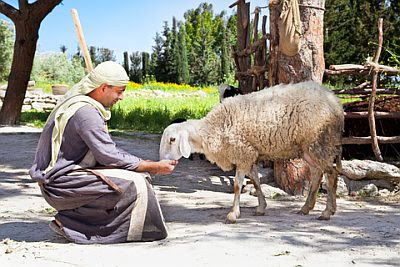













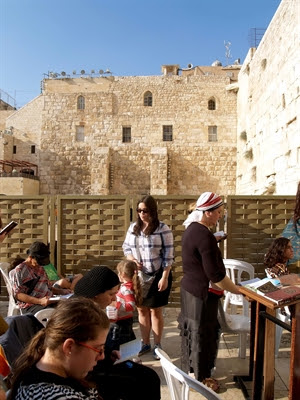






 Jewish man overlooks the Al-Aqsa mosque on the Temple Mount.
Jewish man overlooks the Al-Aqsa mosque on the Temple Mount.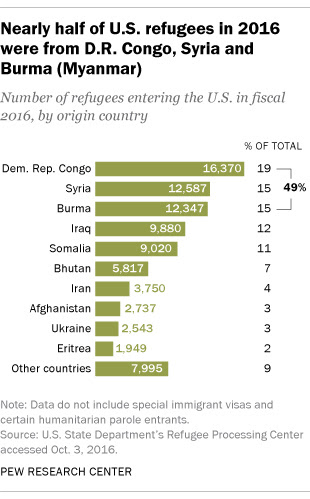 The Obama administration approved 110,000 new refugees for entry in 2017; Trump has lowered the target to 50,000. While his policies are being reported as hateful and biased against Muslims in the US media, hate crimes against Christians and Jews are growing around in these Muslim nations and around the world. We must reach out to lesser known media outlets that advocate for religious freedom, such as Alliance Defending Freedom (ADF) International to find out what is really happening. ADF states that hate crimes against Christians throughout the world include, “physical assaults, arrests and detentions, the desecration of holy sites and discrimination against religious groups in employment, education or housing,” not to mention beheading, flogging, and sex slavery. (CNS News) Let's take a look at some of these incidents.
The Obama administration approved 110,000 new refugees for entry in 2017; Trump has lowered the target to 50,000. While his policies are being reported as hateful and biased against Muslims in the US media, hate crimes against Christians and Jews are growing around in these Muslim nations and around the world. We must reach out to lesser known media outlets that advocate for religious freedom, such as Alliance Defending Freedom (ADF) International to find out what is really happening. ADF states that hate crimes against Christians throughout the world include, “physical assaults, arrests and detentions, the desecration of holy sites and discrimination against religious groups in employment, education or housing,” not to mention beheading, flogging, and sex slavery. (CNS News) Let's take a look at some of these incidents. Nigerian Christians
Nigerian Christians A church in Cairo
A church in Cairo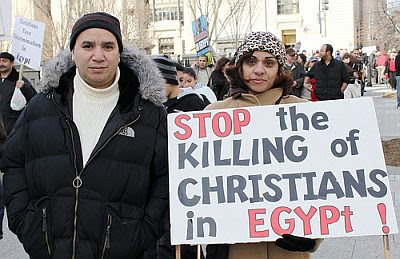


 Terror stats from September 2015 to end of 2016 in Israel.
Terror stats from September 2015 to end of 2016 in Israel.  "We have come to share in Messiah, if indeed we hold our original confidence firm to the end."
"We have come to share in Messiah, if indeed we hold our original confidence firm to the end." 
 Torah scroll
Torah scroll Tourists overlooking the Temple Mount from the Mount of Olives.
Tourists overlooking the Temple Mount from the Mount of Olives. Torah scrolls are stored in this elaborate Aron Kodesh (Holy Ark) in a synagogue in Safed, Israel.
Torah scrolls are stored in this elaborate Aron Kodesh (Holy Ark) in a synagogue in Safed, Israel. The Tabernacle in the Wilderness, 1890 Holman Bible illustration
The Tabernacle in the Wilderness, 1890 Holman Bible illustration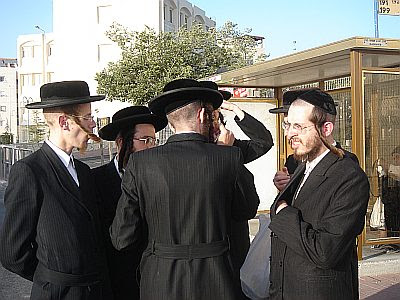 The Shabbat, which is kept diligently by ultra-Orthodox Jews, is a festivel day that offers opportunity for prayer, reading of the Hebrew Scriptures, and spending time with the family.
The Shabbat, which is kept diligently by ultra-Orthodox Jews, is a festivel day that offers opportunity for prayer, reading of the Hebrew Scriptures, and spending time with the family. A Jewish boy is ready to give his best gift to charity by depositing his coins in the pushka (offering box).
A Jewish boy is ready to give his best gift to charity by depositing his coins in the pushka (offering box).
 A bronze lepton is estimated to have been worth about six minutes of a day’s wage. The term lepton has survived in Greece to this very day, it is 1/100 denomination of the official currency.
A bronze lepton is estimated to have been worth about six minutes of a day’s wage. The term lepton has survived in Greece to this very day, it is 1/100 denomination of the official currency. Women praying at the Western (Wailing) Wall in Jerusalem
Women praying at the Western (Wailing) Wall in Jerusalem Young Jewish men read from the Torah scrolls at the Western (Wailing) Wall in Jerusalem.
Young Jewish men read from the Torah scrolls at the Western (Wailing) Wall in Jerusalem. Model of the Tabernacle in Timna Park, Israel
Model of the Tabernacle in Timna Park, Israel Preparing to read from the Torah scroll in a synagogue in Israel
Preparing to read from the Torah scroll in a synagogue in Israel Orthodox Jewish men walking on a road next to the surrounding wall of the Old City of Jerusalem.
Orthodox Jewish men walking on a road next to the surrounding wall of the Old City of Jerusalem.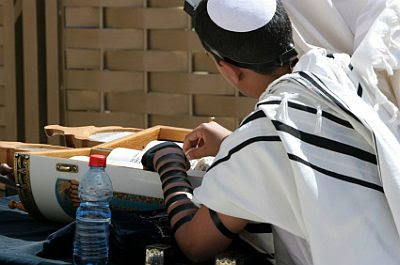 A Jewish man wearing a tallit (prayer shawl) and tefillin (phylacteries) reads from a Torah scroll at the Western (Wailing) Wall in Jerusalem.
A Jewish man wearing a tallit (prayer shawl) and tefillin (phylacteries) reads from a Torah scroll at the Western (Wailing) Wall in Jerusalem. Israeli youth
Israeli youth there is still so much work to be done. We ask that you partner with us today to help us produce the Messianic Prophecy Bible. "If you follow my decrees and are careful to obey my commands, 4I will send you rain in its season, and the ground will yield its crops and the trees their fruit." (Leviticus 26:3–4)
there is still so much work to be done. We ask that you partner with us today to help us produce the Messianic Prophecy Bible. "If you follow my decrees and are careful to obey my commands, 4I will send you rain in its season, and the ground will yield its crops and the trees their fruit." (Leviticus 26:3–4)